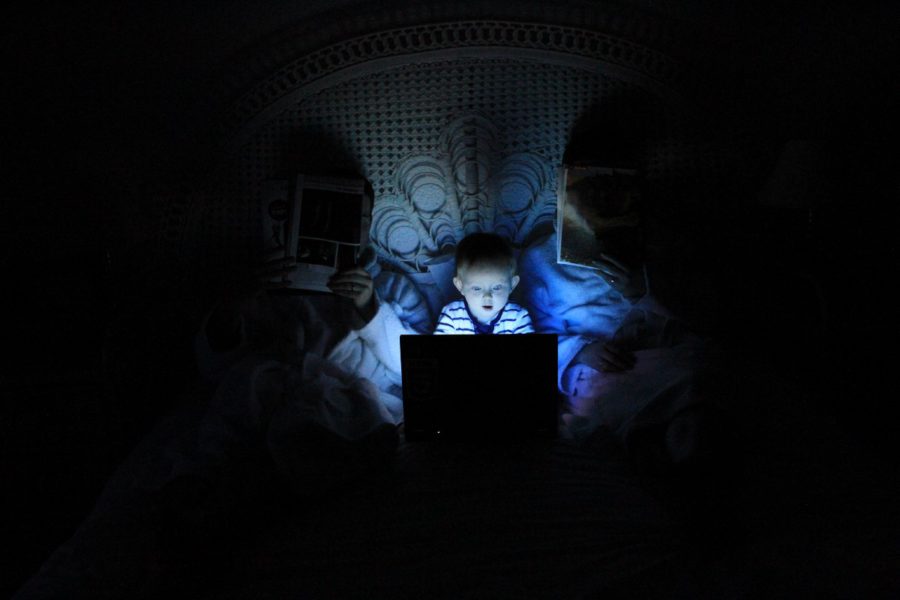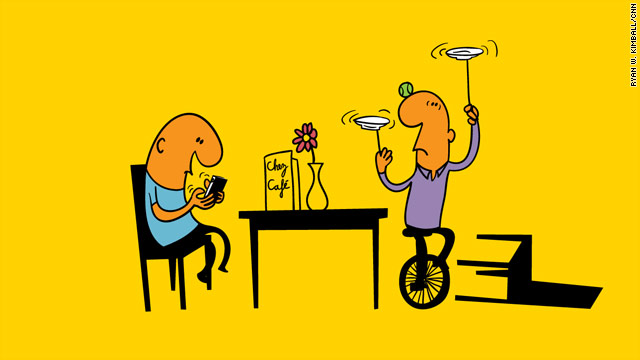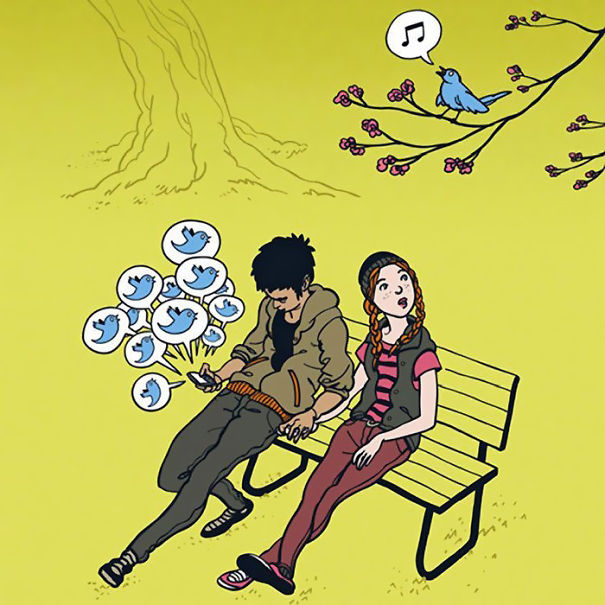Your absolute attention can be a real gift for someone. Especially if for this you defeat your smartphone addiction …

Original material by Kitty Hannah Eden
Today, this happens very rarely due to the ubiquity of smartphones. Go to any cafe or restaurant and see how gadgets take pride of place on the table. Or worse, two people can sit side by side and look at their phones instead of talking to each other. It happened to me and my other half, and I had to make a deliberate effort on myself in order to shove the smartphone back into my pocket.
What was once considered the height of rudeness has become the norm, has become common and everyday.
Despite the fact that there may be a living person sitting in front of us, we prefer the company of pixels and data packages. As if we were allergic to the presence of our peers nearby, and we choose to communicate with their digital impersonations, and not with real people.
There is no reason to constantly check the phone, the exception may be a sick relative or a job that requires constant being near the phone. But while social media can wait, the continuous feedback loop does not easily let go of those who associate their self-worth with the number of hearts and thumbs up.

This is because human nature forces us to constantly seek approval and the Internet takes advantage of this, taking us on the hook. Suddenly, everything becomes interesting, whether it's the lunch menu of an unknown person on the other side of the world or the next pearls from the White House.
We feast on a digital bottomless pit with incoherent content and never get enough. We demand more, more and more, locking ourselves into a vicious circle. And yet, I love the internet. I have lived with him side by side almost since his appearance and thanks to him my life has become better, the network has given me the key to the whole world. Thanks to him, I managed to wriggle out of a toxic first marriage, find real friends, and build a career.

My digital identity has always been a continuation of my real-life version of flesh and blood, they were one whole. There is no difference between who I am online and who I am outside of it, but the fact is that on paper my judgment is manifested better than in real life. In the same vein, I do not write about what I do not want to talk to you about when I meet. And when we talk about attention, I'm trying to apply the same principles online as I do offline.
For example, it will take a long time to reply to a long and detailed email from a friend. I will brew myself a kettle of tea and devote myself completely to composing a thoughtful, balanced answer. Everything else will be left out, no matter how long the process of responding to a letter is. This is how I pay due attention to my friends, despite the kilometers and time zones separating us.
I try to use social media in a similar way, briefly, with thoughtful forays, rather than mindless scrolling through the feed. I am up to date with news, keep in touch with friends and acquaintances, and also do not forget about my cats. And that is enough for me. Also, recently it was discovered that if you constantly stare at the phone, then there is an urge to nausea, and I regard this discovery as a hint that it is time to reduce my time spent face-to-face with the screen.
After all, I don't need to know things that don't matter in my life or fan the flames of anger in obvious arguments. Instead, I treat my attention as an exhaustible currency and try to use it wisely.

My phone sends me a weekly report of how many hours I spent with it, as if reproaching me. The very assumption that I cannot regulate my behavior is perceived as slightly offensive. But again, this symptom is found everywhere in the country, where people need to be systematically protected from themselves. It seems that the average US citizen is so helpless that you constantly have to clatter with him like a small child.
As a result, there will always be people willing to push us in the right direction and help along the way, but at a price. Technologies create a problem, the same technologies make money by solving it, a win-win situation on both sides in which everything is based on making a profit. At the same time, the consumer pays in the hope of a subtle change in life.
Almost anything can be bought and sold in the US, but do we really want our attention to become a commodity? Yes, clickbait is trying to draw our attention to itself in order to obtain benefits, but we are not as weak-willed, as the weekly reports on the phone convince us.
Attention is a luxury, and we can still choose what and on whom to spend it.
We don't need to be slaves to alerts, they can be turned off. We don't need to be slaves to status updates, all smartphones have a call and create email function. We don't have to feed our anger, whether to react or not is our choice. But what happens to our brain, which is constantly fueled by a continuous stream of nonsense? And what will happen to the people we love if we ignore them?
Instead of asking ourselves who we are becoming, it is better to ask this question – who do we want to be?
Original material by Kitty Hannah Eden
It still seems to me that sociopathy as a result of constant smartphone use is not an obvious scenario. In my opinion, gadgets are just a tool, in any case the owner will be responsible for everything. Of course, there are boundaries and boundaries, and the fact that dopamine bursts from hearts and 'likes' are kind of addictive.
The digital personality as an extension of the real personality is an excellent and reasonable concept, the main thing is that people in the real world do not feel inconvenience from a person immersed in a networked life. The balance is important, no doubt, because we all first of all live in society, and only then, from above, our virtual self is superimposed. So everyone should ask the question raised by the author: so who do we want to be?
